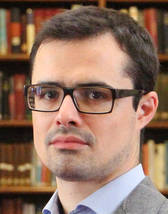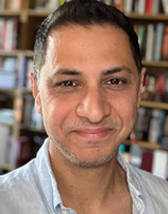Understanding Iran’s Role in the Syrian Conflict
This paper provides a comprehensive analysis of Iran's role in the Syrian conflict, drawing on the perspective of major regional state and non-state actors
The alliance between the Syrian regime and the Iranian leadership is, on the face of it, puzzling. The former is Arab, Alawite and secular, while Iran is Islamic, Shia and deeply religious. Nevertheless, since the civil war in Syria erupted in March 2011, Iran has been one of the key supporters of the regime of President Bashar Al-Assad, and has maintained significant influence over the evolution of the conflict.
This paper presents the findings of a project designed to establish a better understanding of Tehran’s ultimate ambitions in Syria, its relations with the other state and non-state actors involved in the conflict, and its influence on Damascus and the outcome of the civil war.

About the Authors:
Kamal Alam is a Research Analyst in International Security Studies at RUSI. His research focuses on Pakistani defence, the relationship between the Pakistani military and the Arab states, the Syrian army and Syrian state affairs, and Syria’s relationship with non-Arab countries in the Middle East.
Ali Ansari is Professor of Iranian History and Director of the Institute for Iranian Studies at the University of St Andrews, Senior Associate Fellow at RUSI, and President of the British Institute for Persian Studies.
Aniseh Bassiri Tabrizi is a Research Fellow in International Security Studies at RUSI. Her research is concerned with security in the Middle East, with a particular focus on Tehran’s foreign and domestic politics, as well as EU–Iranian relations and EU sanctions on Iran.
Shashank Joshi is a Senior Associate Fellow at RUSI and a doctoral student of International Relations at Harvard University’s Department of Government. He specialises in international security in South Asia and the Middle East.
Hassan Hassan is a Resident Fellow at the Tahrir Institute for Middle East Policy in Washington, DC, and Associate Fellow at Chatham House’s Middle East and North Africa Programme in London. His research focuses on Syria, Iraq and the Arab Gulf States as well as Islamist and Salafi groups.
Sarah Lain is a Research Fellow in International Security Studies at RUSI. Her research focuses on Russia and the former Soviet Union. She has a particular interest in Central Asia and China’s growing influence in the region.
Raffaello Pantucci is the Director of International Security Studies at RUSI. His research focuses on counterterrorism as well as China’s relations with Western states.
Michael Stephens is a Research Fellow for Middle East Studies at RUSI and Head of RUSI Qatar. He is a specialist in Qatari foreign policy and Gulf security, Arab Shia identity across the Middle East, as well as Iraqi Kurdistan and the Kurdish regions of Syria.
Igor Sutyagin is a Senior Research Fellow in International Security Studies at RUSI. His research is concerned with US–Russian relations, strategic armaments developments and broader nuclear arms control, and anti-ballistic missile defence systems.
WRITTEN BY
Dr Aniseh Bassiri Tabrizi
External Author
Raffaello Pantucci
RUSI Senior Associate Fellow, International Security
Sarah Lain
Dr Igor Sutyagin
Ali Ansari
RUSI Senior Associate Fellow, International Security
Michael Stephens
RUSI Senior Associate Fellow, RUSI International
Shashank Joshi
Advisory Board Member







